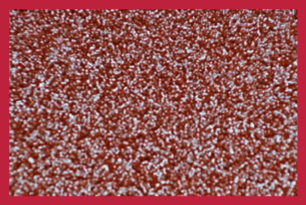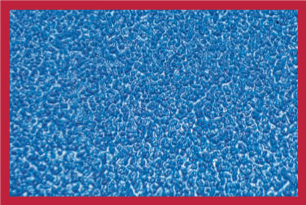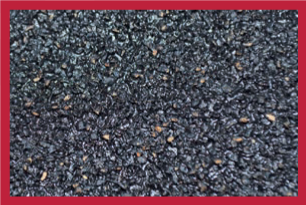Minerals used to make flexible abrasives are chosen based on specific characteristics: hardness, tenacity, resistance to heat, to burring and shape of grains.
ALLUMINIUM OXIDE (CORUNDUM) This is made of tenacious crystals, resistant to wearing and with sharp corner grain fracture.
This is made of tenacious crystals, resistant to wearing and with sharp corner grain fracture.
It enables perfect penetration of tenacious materials and it is specifically used with high processing speeds.
Thanks its characteristics, it is suited for polishing materials very resistant to traction like:
- Carbon steel
- Stainless steel
- Bronze
- Hard woods
ZIRCONIUM This has the capacity to self-energise during polishing so that is long lasting in heavy removal operations.
This has the capacity to self-energise during polishing so that is long lasting in heavy removal operations.
Thus, it is indicated:
- For deburring metals, in particular stainless steel
- In calibrating wood as the controlled grain fracture produces new, sharp abrasive cusps
SILICON CARBIDE Formed by crystals with a highly irregular glass nature and very sharp corners.
Formed by crystals with a highly irregular glass nature and very sharp corners.
It is the harder and sharper than minerals normally used in flexible abrasives. Being fragile, it flakes during processing thus creating new cutting edges to remove many materials.
Silicon carbide minerals are used when single solicitations are not very high and mainly to polish:
- Non-ferrous materials: aluminum, brass, bronze, magnesium, titanium
- Relatively soft materials: rubber, plastic, fibrous woods
- Hard materials: glass, stone and ceramics.





